Literature
Read interesting literature and researches about micro-organisms
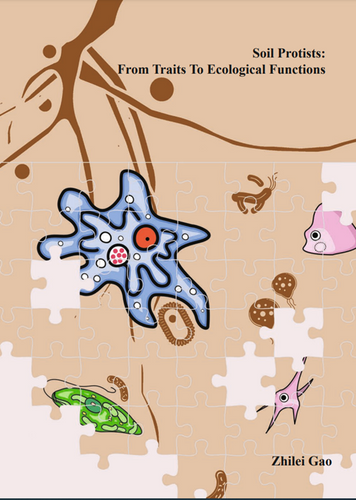
PhD thesis: Zhilei Gao Read the full PhD thesis here.
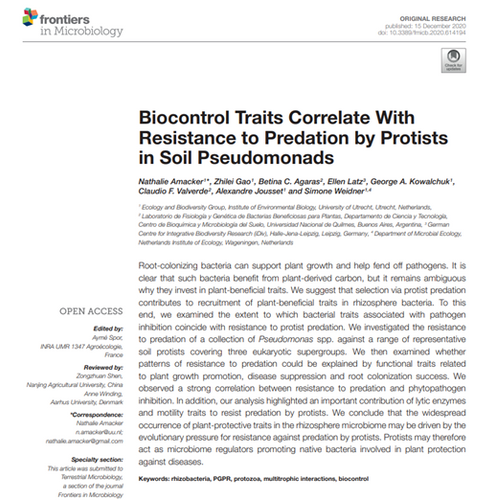
Root-colonizing bacteria can support plant growth and help fend off pathogens. It is clear that such bacteria benefit from plant-derived carbon, but it remains ambiguous...
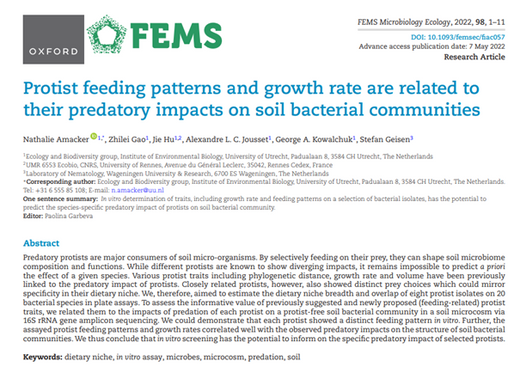
Predatory protists are major consumers of soil micro-organisms. By selectively feeding on their prey, they can shape soil microbiome composition and functions. While different protists...
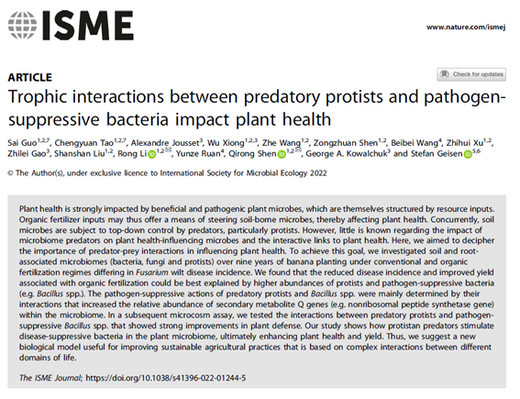
Plant health is strongly impacted by beneficial and pathogenic plant microbes, which are themselves structured by resource inputs. Organic fertilizer inputs may thus offer a...
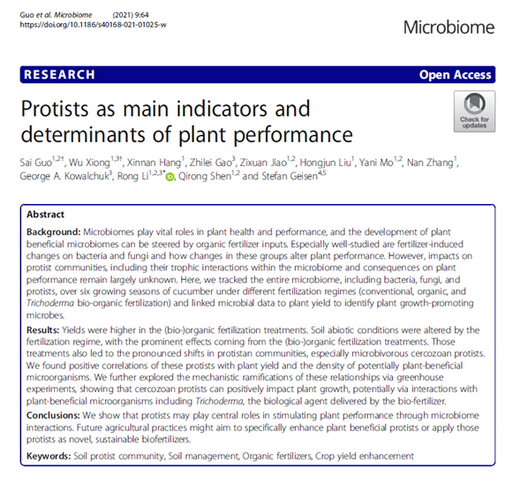
Background Microbiomes play vital roles in plant health and performance, and the development of plant beneficial microbiomes can be steered by organic fertilizer inputs. Especially...
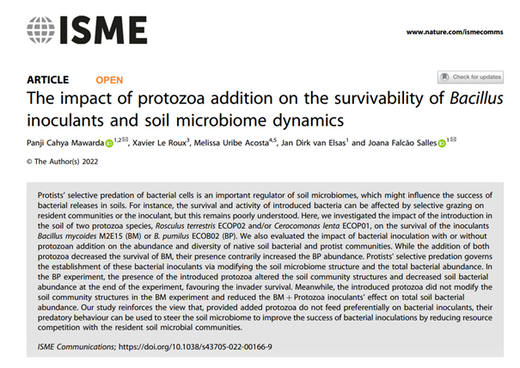
Protists’ selective predation of bacterial cells is an important regulator of soil microbiomes, which might influence the success of bacterial releases in soils. For instance,...
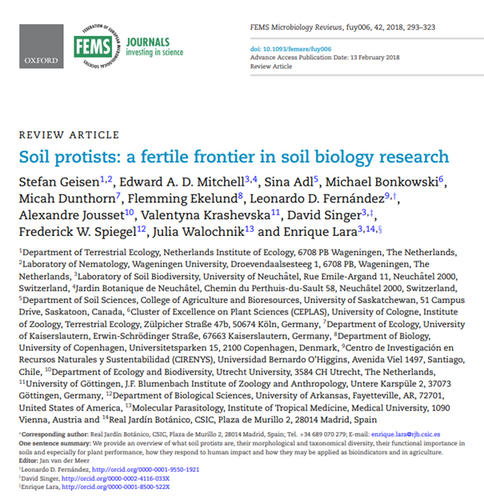
Abstract Protists include all eukaryotes except plants, fungi and animals. They are an essential, yet often forgotten, component of the soil microbiome. Method developments have...
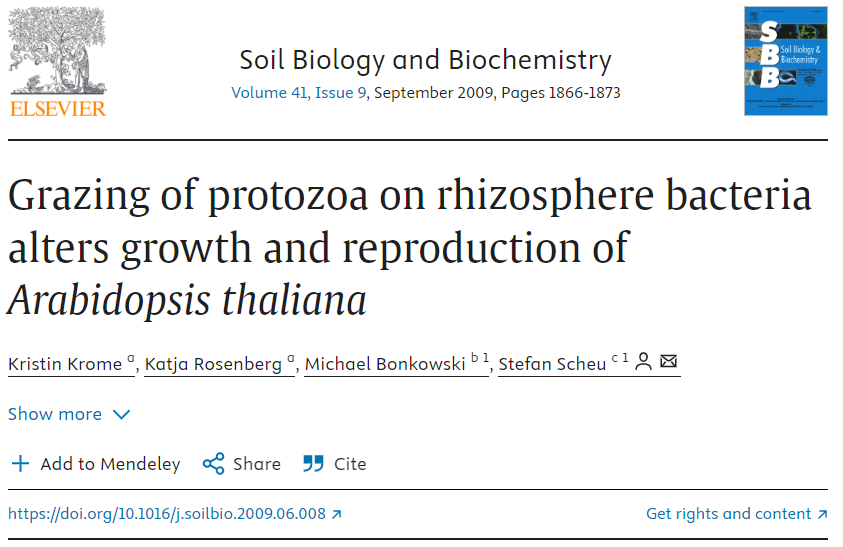
Abstract Plant roots are densely colonized by bacteria which form the basis of the rhizosphere bacterial food web with protozoa as most effective predators. We...
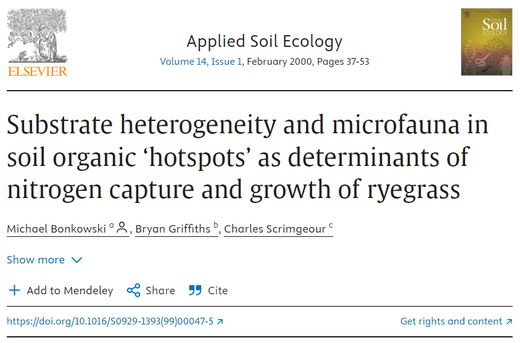
Abstract In this study we simultaneously manipulated the patchiness of complex organic resources and the composition of microfaunal populations (protozoa and nematodes) in soil, to...
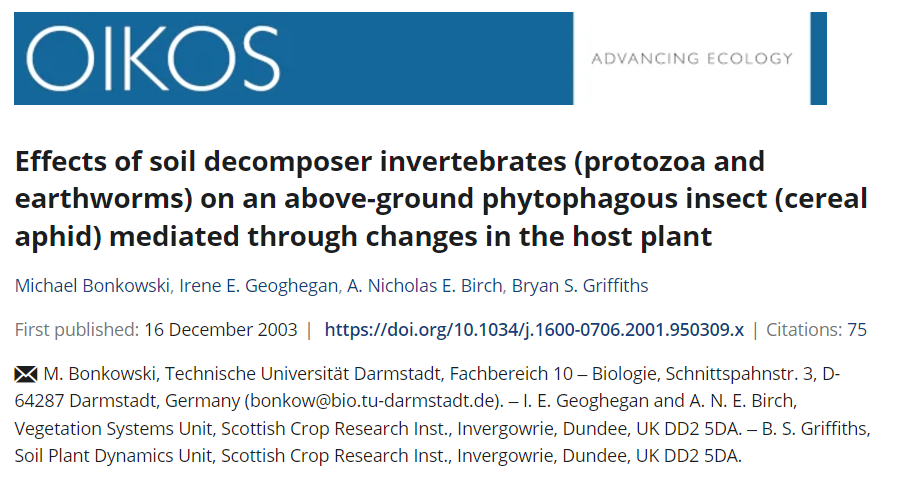
Abstract We investigated if the activity of soil invertebrates (protozoa and earthworms) affected the performance of barley and if effects propagated higher up the above-ground...